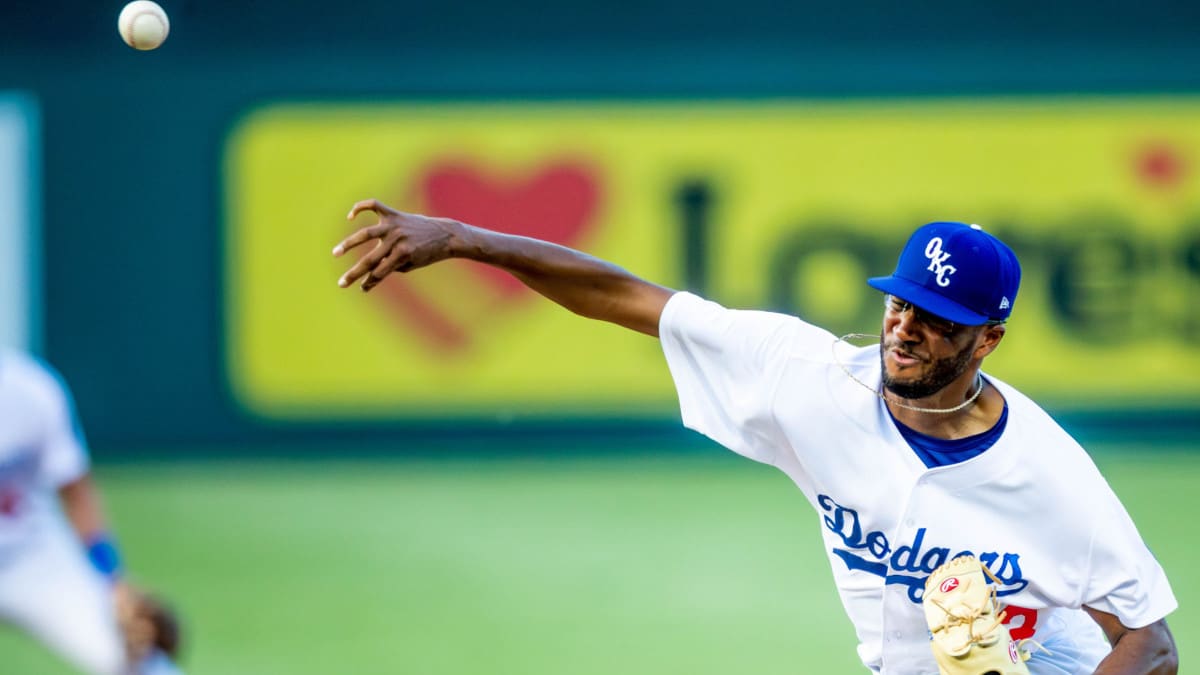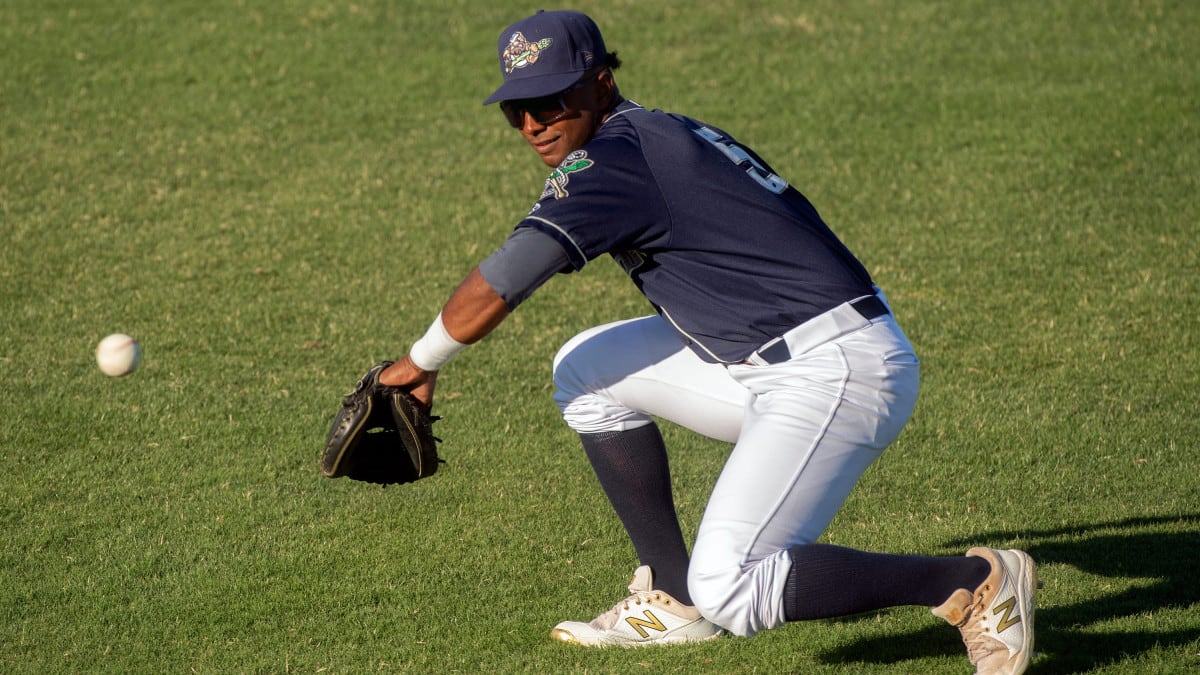Usually, at this point in the calendar, Mark Washington would be working to secure an off-season gig. The minor league pitcher was accustomed to this scramble: After grinding through the season, Washington lined up a new job for the winter, spending the next few months getting up early for workouts before spending hours on his feet at work and trying to cram in bullpen sessions or additional time in the gym where he could. It was not exactly the ideal way to hone his craft as a ballplayer. But he didn’t have a choice. There was no pay for minor leaguers in the winter—or in spring training—and virtually no way to save anything from their meager salaries during the summer. Any development or rest in the offseason had to come around second (or third) jobs.
This year? The situation has finally changed. For the first time, all minor leaguers will be paid over the offseason, $250 a week for players at home. That’s game-changing (and life-changing) for players like Washington.
“It’s just the peace of mind,” says the 27-year-old reliever, who spent this season with the Triple-A Oklahoma City Dodgers. “It’s not having to worry about what I’m going to do in the offseason, am I going to be able to make ends meet, all of that. . . . It’s helped a lot, honestly, just mentally. I don’t have to stress as much.”
The change is one of many for minor leaguers as they finish their first season as unionized players.

NATHAN J. FISH/THE OKLAHOMAN/USA TODAY NETWORK
This week marks one year since the minor leaguers became members of the Major League Baseball Players Association. They signed union cards with the MLBPA last August, had the process verified by an arbitrator and were voluntarily recognized by MLB last September and ratified their first collective bargaining agreement in April. That means this year has been unlike any other in the history of the minor leagues, with increased pay, smoother transportation, guaranteed housing at all levels and a slew of other benefits locked in.
It's especially gratifying for players who put in the work to help get them here, including Washington, who was involved in bargaining and is now a player representative for the Dodgers’ system.
“We knew we wanted change—that we wanted to help the rest of the minor leaguers and do our part,” Washington says. “But we didn’t know if it was likely to happen. It was just a wild process.”
Securing their first CBA meant a crash course in the ins and outs of bargaining. (Including learning just how many lawyers are required: “It’s absurd the amount of guys behind the scenes,” laughs Danny Bautista Jr., a 22-year-old in the A’s system who participated in the process. “But it was really cool to see.”) To come out on the other side with so many quality-of-life improvements felt like a massive victory.
That resulted in what felt like a radical shift this season. With so many fundamentals taken care of, players could focus more on their actual jobs, less on the question of how to make a decent living. Bautista recalls teammates coming up to him when the CBA was ratified this spring to ask what came next. He was thrilled to share the answer: Now, we just get to play baseball.
“You don’t have to worry about housing, food, anything like that,” Bautista recalls telling those friends and teammates. “You don’t have to decide whether you’re going to be paying for your rent or skipping a couple of meals. It was amazing.”
If those sound like basic guarantees, they were legitimate questions for players in the minors for decades. Some had large signing bonuses to rely on. But the majority did not, and shuttling from one affiliated team to another with low wages and without guaranteed housing could be stressful at best, miserable at worst. It was not uncommon to hear of players sleeping three or four (or more) to a shared bedroom or spending the entire season on an air mattress. The experience of getting promoted or traded meant an immediate scramble for a short-term lease in a new city while trying to find someone else to take over the old one. The last few years brought progress as the situation garnered national attention and public opinion began to shift. (That was due in large part to the work of nonprofit groups, such as More Than Baseball and Advocates for Minor Leaguers, the latter of which has since had its staff absorbed by the MLBPA.) And a huge change came before the 2022 season, when MLB announced that for the first time, minor leaguers would have living accommodations provided for them.
But players and their advocates wanted to make sure that housing would be standardized and guaranteed for years to come and that other aspects of their working conditions were addressed, too. Enter their unionizing push.
This would have been all but unthinkable just a few years prior. Brad Case, a 27-year-old pitcher and union representative in the Pirates’ system, remembers how nervous he was the first time he heard the word “unionization” on a Zoom call. “It kind of made me panic and take a step back. . . . Obviously, the dream is to get to the big leagues, and I saw that as maybe sticking my neck out that could get me into trouble and ultimately end that dream,” he says. “But I realized, maybe it’s more worth it to stand up and do the right thing not only for myself, but for my friends, too.” That mindset propelled his involvement through the whole process.
It paid off. Literally. For the first time, Case says, he finished the season with money in his pocket: He’d never been paid enough to save during the season before. Now, he can invest in pay for training and equipment over the offseason to be at his best in the spring.
“I mean, $30,000 isn’t crazy money, but for us going from $6,000 a couple of years ago to $30,000—that change alone is impactful,” Case says. “It’s going to make a lot of baseball players’ lives better.”
Players in Triple A now have a minimum salary of $35,800. Double A is $30,250, High A is $27,300 and Low A is $26,200.

CLIFFORD OTO/THE STOCKTON RECORD
Those changes have been meaningful for everyone. But they’ve been especially so for players from Latin America—who face all sorts of challenges that domestic players generally do not.
“It was really hard for them, just dealing with transportation and housing,” Bautista says. “It’s just been truly amazing. With that extra money, they can send a couple more dollars home to their families, where some are really struggling over there. It’s a big weight lifted off their shoulders.”
To be at the bargaining table as a voice for Latino players was important to Bautista. He is the son of former major leaguer Danny Bautista and was born in Phoenix while his dad played for the Diamondbacks. But he moved to his father’s native Dominican Republic as a teenager after spending his early childhood in the U.S. That experience made him feel confident here: He understood Latino players’ struggles but was personally secure enough to be more comfortable taking a stand. “My dad helped me through it,” he says. “He said, speak your mind, and know at the end of the day that you’re making lives better not just for these groups of players but for generations to come.” Seeing the resulting change for so many players this year was heartening, Bautista says.
“This generation of Minor League Players caused seismic changes to our game in a remarkably short period of time. Their historic collective bargaining agreement significantly improved the daily lives of over 5,000 ballplayers and their families; providing improved salaries, health and retirement benefits, housing, transportation, food, workplace safety, free agency, NIL rights, and a prohibition on contraction during the course of the CBA,” MLBPA executive director Tony Clark wrote in a statement. “As current and future athletes of all sports navigate the challenges of a rapidly changing industry, they can look to Minor League Players as a sterling example of collective dedication, perseverance, and unity."
The change has occurred so quickly that younger players can be surprised to hear stories of conditions from just a few years ago. Case spent time at lower levels this year after getting injured and tweaking his delivery—and found himself in a position to help educate some of his teammates. “I tried to make them aware of the process that had to happen,” he says. It’s a legacy he’s proud to share.
“The minor leagues, it might be a part of baseball that not a lot of people pay attention to,” Case says. “But the next however many generations of players—their lives are going to be better because of this.”







